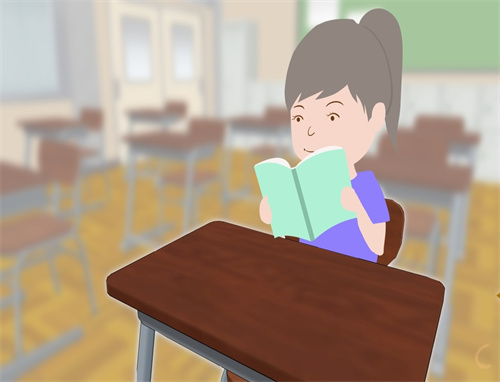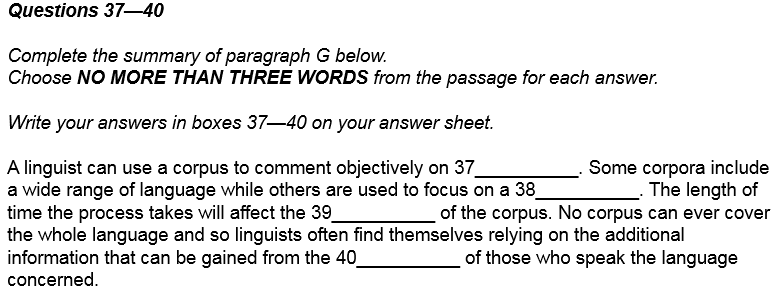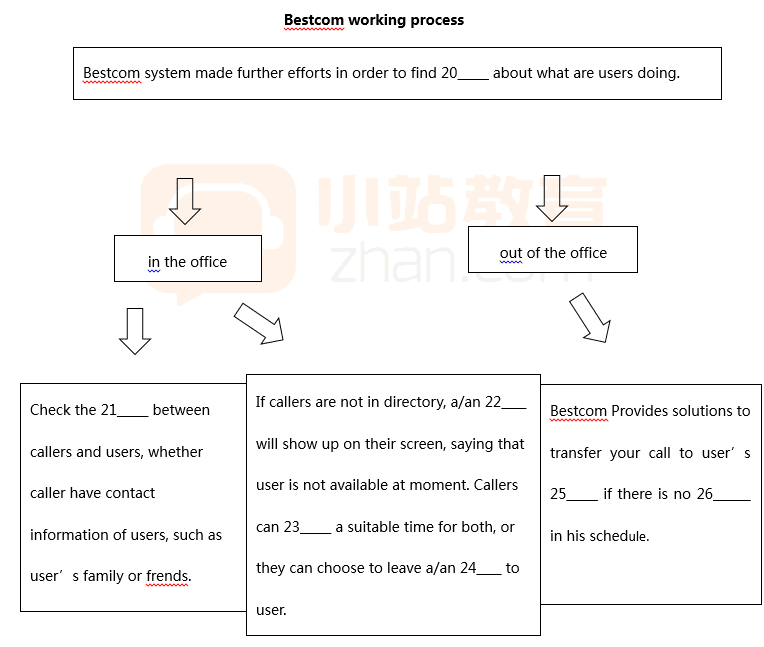看不懂托福阅读长难句没关系, 四类长难句分析方法汇总在这里,今天小编给大家带来了看不懂托福阅读长难句没关系,希望能够帮助到大家,下面小编就和大家分享,来欣赏一下吧。
看不懂托福阅读长难句没关系 四类长难句分析方法汇总在这里
一.包含插入语的托福阅读长难句如何理解
所谓插入语就是不影响句子含义和结构的插入成分。常见的插入语有that is, that is to say, what’s more, to tell you the truth, frankly speaking等,处理插入语的最佳办法就是删除。
二.包含同位语的托福阅读长难句如何理解
所谓同位语,顾名思义,就是起重复性解释作用的成分。在托福阅读中遇到同位语最佳的处理方法就是删除同位语,从而更好地理解。关于同位语的识别,一般都是以A, B的形式出现,例如,the president of USA, Trump,关于删除方法,则以保留最简单的表达为删除原则。
三.包含定语的托福阅读长难句如何理解
定语的“定”主要指限定,形容词、名词、介词短语等都可以作定语,来修饰、限定名词。
英语中也可以用一个句子来修饰、限定一个名词(或者名词词组、句子),这样的句子叫做定语从句。被修饰的名词(词组、句子)叫做先行词,连接定语从句和主句的叫做关系词,即that。关系词分为两类,关系代词(that which who whom whose)和关系副词(when where why),关系词在从句中起三个作用——指代前面先行词,连接从句和主句,在定语从句中作成分。
前置定语的识别:adj. + n. (比较容易判断)
后置定语的识别:形容词短语(adj. + prep. + n./prep.)
e.g. A book useful for your management
一本有助你进行管理的书。
介词短语(prep. + n./pron.)
分词短语(ving/ved + prep. + n./pron.)
e.g. A person walking on the road.
动词不定式(to do sth.)
e.g. A way to solve the problem.
表语形容词(alike, alive, alone)
注:不定代词只能用后置定语修饰
四.包含状语的的托福阅读长难句如何理解
首先需要强调的是状语修饰非名词,状语的位置比较随意。可以充当状语的成分比较多,有副词,e.g. He secretly decided to leave the room.
介词短语e.g. We have friends all over the world
不定式(短语)I went there to see my grandmother.
分词(短语)现在分词e.g. Being a poor teacher, he can’t afford to buy a car.
过去分词e.g. He entered, accompanied by his son.
形容词e.g. He said nothing but sat silent smoking.
词组e.g. I shall stay another five months.
复合结构e.g. It being a holiday, the library isn’t open.
从句e.g. Next time you come in, please close the door.
有的时候名词也可以作状语e.g. We’ve been waiting hours waiting for you.
从上文中可以看出,托福阅读长难句有很多不同的种类,而针对不同种类的托福阅读长难句我们也要使用不同的分析方法,这样才能更好地理解阅读中的长难句。
托福阅读素材:芬兰基于平等的教育体系
Finnish education often seems paradoxical to outside observers because it appears to break a lot of the rules we take for granted. Finnish children don’t begin school until age 7. They have more recess, shorter school hours than many U.S. children do (nearly 300 fewer hours per year in elementary school), and the lightest homework load of any industrialized nation. There are no gifted programs, almost no private schools, and no high-stakes national standardized tests.
Yet over the past decade Finland has consistently performed among the top nations on the Programme for International Student Assessment (PISA), a standardized test given to 15-year olds in 65 nations and territories around the world. Finland’s school children didn’t always excel. Finland built its excellent, efficient, and equitable educational system in a few decades from scratch, and the concept guiding almost every educational reform has been equity. The Finnish paradox is that by focusing on the bigger picture for all, Finland has succeeded at fostering the individual potential of most every child.
I recently accompanied Krista Kiuru, Finland’s minister of education and science, when she visited the Eliot K-8 Innovation School in Boston, and asked her what Finland is doing that we could learn from.
I visited four Finnish schools while researching my book Parenting Without Borders. While there, I frequently heard a saying: “We can’t afford to waste a brain.” It was clear that children were regarded as one of Finland’s most precious resources. You invest significantly in providing the basic resources so that all children may prosper. How do these notions undergird your educational system?
We used to have a system which was really unequal. My parents never had a real possibility to study and have a higher education. We decided in the 1960s that we would provide a free quality education to all. Even universities are free of charge. Equal means that we support everyone and we’re not going to waste anyone’s skills. We don’t know what our kids will turn out like—we can’t know if one first-grader will become a famous composer, or another a famous scientist. Regardless of a person’s gender, background, or social welfare status, everyone should have an equal chance to make the most of their skills. It’s important because we are raising the potential of the entire human capital in Finland. Even if we don’t have oil or minerals or any other natural resources, well, we think human capital is also a valuable resource.
How well do you think Finland’s educational system, one based more squarely on equity rather than high achievement, is working?
What Americans Keep Ignoring About Finland's School Success
We created a school system based on equality to make sure we can develop everyone’s potential. Now we can see how well it’s been working. Last year the OECD tested adults from 24 countries measuring the skill levels of adults aged 16-65, on a survey called the PIAAC (Programme for International Assessment of Adult Competencies), which tests skills in literacy, numeracy, and problem solving in technology-rich environments. Finland scored at or near the top on all measures. But there were differences between age groups. The test showed that all younger Finns who had had a chance to go to compulsory basic school after the reforms had extremely high knowledge; those who were older, and who were educated before the reforms, had average know-how. So, our educational system is creating people who have extremely good skills and strong know-how—a know-how which is created by investing into education. We have small class sizes and everyone is put in the same class, but we support struggling students more than others, because those individuals need more help. This helps us to be able to make sure we can use/develop everyone’s skills and potential.
I remember being struck by how many vocational or hands-on classes (home economics, art, technology, and so forth) were available to students at every Finnish school I visited. At one secondary school I visited, kids were cooking breakfast; at another, I saw that all the kids had learned how to sew their own bathing suits. More than one teacher remarked, “It’s important for students to have different activities to do during the day.” And there seems to be no stigma about vocational education. Is this attitude true of all schools in Finland?
Yes, we definitely believe that for young people handcrafts, cooking, creative pursuits, and sports, are all important. We believe these help young people benefit more from the skills they’re learning in school.
Do you think that this takes time away from academics?
Academics isn’t all kids need. Kids need so much more. School should be where we teach the meaning of life; where kids learn they are needed; where they can learn community skills. We like to think that school is also important for developing a good self-image, a strong sensitivity to other people’s feelings … and understanding it matters to take care of others. We definitely want to incorporate all those things in education.
I also believe that breaking up the school day with different school subjects is very important. We offer a variety of subjects during the school day. We’re also testing out what it’s like to have breaks in the middle of the school day for elementary school students. At a few elementary schools recently we’ve been offering sports, handcrafts, or school clubs during the middle of the school day, rather than just in the morning or after school as we already do. This is to help kids to think of something else, and do something different and more creative during the day.
An American librarian I spoke with, who was a visiting scholar in Finland, was struck by things like the fact that there was no concept of Internet filtering or censorship there. She was struck by how much autonomy was given to children as well as to teachers. At the same time, she noticed how much support teachers in Finland get. She visited one first-grade classroom that was taught by a relatively new teacher, and seven adults were standing in the back of the room watching the teacher: the master teacher, a specialty subject teacher from her teaching university, her advisor from university, and a couple of other student teachers. Right after the class, they got together and talked about how the lesson went. This sort of observation/debriefing seemed to be quite common. Finland is also well known for investing heavily in continuous professional development. Can you tell me more about this combination of independence and support?
Teachers have a lot of autonomy. They are highly educated--they all have master’s degrees and becoming a teacher is highly competitive. We believe we have to have highly educated teachers, because then we can trust our teachers and know they are doing good work. They do have to follow the national curriculum, although we do have local curriculums as well. But we think that we’ve been able to create good results due to our national, universal curriculum.
We don’t test our teachers or ask them to prove their knowledge. But it’s true that we do invest in a lot of additional teacher training even after they become teachers.
We also trust in our pupils. Of course we give them exams and tests so that we know how they are progressing but we don’t test them at the national level. We believe in our schools because we consider all schools equal. We don’t school shop in Finland and we don’t have to think about which area to live in to go to a good school.
In Finland we are starting to have some issues … in some suburban schools with more immigrants or higher unemployment, but we support those schools by investing more in them, in the struggling schools.
But you know, money doesn’t make for a better education necessarily. We don’t believe that spending on a particular school will make any one of them better so much as focusing on the content of what we do and giving children individual support.
在外界看来,芬兰的教育似乎很矛盾,因为它打破了很多我们认为理所当然的规则。芬兰的孩子到了7岁才开始接受教育。相比于很多的美国孩子,这里的孩子拥有更多的假期、更短的上课时间(小学每年的上课时间少于300个小时),而且在所有的工业化国家里,他们拥有最轻的作业压力。这里没有特长项目、几乎不存在私立学校,也没有高风险的国家级标准化考试。
然而过去十年里,在国际学生评估项目(PISA,一个在全球65个国家和地区开展的针对15岁学生的测试)中,芬兰持续名列前茅。过去,芬兰学校里的学生并不那么优秀。在过去几十年里,芬兰从无到有建立了自己杰出、高效、平等的教育体系,而且引领所有教育改革的观念都是平等。芬兰悖论在于专注于更大的图
最近,我陪同芬兰教育和科学部长克莉丝塔·克以伍卢参观了位于波士顿的艾略特学习创新学校(Eliot K-8 Innovation School),并且向她咨询了我们可以向芬兰学习的地方。
为了著书《育儿无国界》(Parenting Without Borders),我来到芬兰的四所学校参观、调研。当时,我反复听到一句话:“我们无法承担浪费一个大脑。”很明显,孩子被视为芬兰最珍贵的资源之一。你们大量投资来提供基本的资源,为的是所有的孩子都能有所作为。这些概念是如何从底层加固你们的教育体系的呢?
过去我们的体系非常不公平。我的父母就没有真正的机会去学习、去接受高等教育。上个世纪60年代,我们决定给所有人提供免费的高质量教育。甚至连大学都是免费的。平等意味着我们支持每一个人,我们不打算浪费任何一个人的才能。我们不晓得孩子们以后会变成什么样——我们无从知道一个一年级的孩子是否会成为著名的作曲家,或者另一个孩子能否成为杰出的科学家。不论性别、背景、抑或福利状况,每一个人都应该拥有平等的机会来最好地发挥才能。这一点很重要,因为我们在培养芬兰整个人力资本的潜能。即使我们没有了石油、矿物质或者其他的自然资源,那么,我们依然认为人力资本是一种珍贵的资源。
就芬兰这个更直接地基于公平而非高成就的教育体系,你认为它运行得怎么样?
我们创建了一个基于平等的学校体系,从而确保我们能够发挥每一个人的潜能。现在我们可以看到它运行得多么好。去年,经济合作与发展组织(OECD)在一项名为“国际成人能力测评项目”(PIAAC)的调研中,对24个国家年龄在16-65区间的成人进行了能力水平测试,包括读写能力、计算能力以及富科技环境中解决问题的能力。在所有的测试中,芬兰得分最高,或者接近最高。不过年龄段之间存在着差异。测试表明所有年轻的芬兰人,即那些有机会进入改革之后的义务型基础学校的人,都拥有极高的知识水平;那些年长一些的人,即那些在改革之前接受教育的人,拥有一般的知识水平。因此,我们的教育体系是创造有极高技能和诀窍的人——通过投资教育来实现。我们采取小班制,所有人都在同样的班级里,不过我们会给予学习吃力的孩子更多的支持,因为他们需要更多的帮助。这样有助于我们确保利用/发展每一个人的才能和潜力。
在我参观的每一个芬兰学校里看到有如此多可供学生选择的职业课或者手工课(家政、艺术、技术等等)时,我记得自己当时被震惊了。在一所中学里,孩子们在做早饭;在另一所中学,我看到所有的孩子已经学习了如何缝补浴衣。不止一位老师强调说,“每天让孩子们做一些不同的活动是很重要的。”这种职业教育似乎并无污名。在芬兰,所有的学校都是这种态度吗?
是的,我们真心认为对于年轻人而言,手工艺、做饭、创造性的追求以及运动,都很重要。我们认为这些在学校里学到的技能能够使年轻人受益更多。
你认为这会减少学生们做学术的时间吗?
学术并非所有孩子都需要的。孩子们需要更多的东西。学校应该是我们教导孩子人生意义的地方;是让孩子们明白他们的存在是有价值的地方;是孩子们学习社交技能的地方。对于孩子们培养良好的个人形象、对他人感受的强烈敏感力……以及理解关心他人是有必要的,我们认为学校起到同样重要的作用。我们真心希望能够把所有这些东西融入教育之中。
我还认为用不同的教学科目把一个教学日分解是非常重要的。在一个教学日里,我们教授不同的科目。我们也在尝试在小学教学日的中间添加休息时间。最近在一些小学里,我们开始在教学日的中间提供运动、手工或者学校俱乐部,并非如我们之前做的那样仅仅在早晨或者放学后。这是为了帮助孩子们思考一些其他的事情,在一天中做一些不同的、更具创造力的事情。
我曾经跟一位来芬兰做访问学者的美国图书管理员交谈过,在芬兰并不存在网络过滤或者审查,这一事实让她非常震惊。同样令她震惊的还有,孩子以及老师竟然有如此大的自主权。与此同时,她注意到芬兰的老师能够得到如此大力的支持。她参观过一个一年级的班级,当时由一位新老师任教,还有七个成年人站在教室的后面听课:一位高级教师,一位来自她所在大学的特长科任老师、她的大学导师、还有两三位别的任课老师。一下课,他们就聚集起来,谈论课程进行得如何。这种听课/课后解说的做法似乎非常普遍。芬兰同样以大力投资继续职业发展著称。你能详细讲一下这种独立和支持的结合吗?
老师们拥有很多自主权。他们都受过高等教育——都拥有硕士学历,要成为老师,竞争也是相当激烈的。我们必须拥有教育程度很高的老师,因为那样我们才可以信任我们的老师,知道他们会教得很好。他们必须按照国定课程授课,尽管我们确实也有一些地方课程。不过我们认为按照我们的全国性统一课程,我们已经能够达到很好的结果。
我们不会考核我们的老师或者要他们证明自己多么有学识。不过我们确实为额外的教师培训投资很多,即使成为老师之后,他们也要接受这些培训。
我们也信任我们的孩子。当然,我们也会给他们考试和测验,这样我们才能知道他们进步如何,不过我们没有国家级别的考试。我们相信我们的学校,因为在我们眼中,所有的学校都是平等的。在芬兰,我们不用选学校,不用考虑住在哪个地区才能进一所好学校。
在芬兰,我们也开始有一些问题……存在于一些多移民或者高失业率的郊区学校,但是我们通过投入更多的资金来支持它们,支持这些有困难的学校。
不过你要知道,金钱并不一定能够造就良好的教育。我们认为相比于把钱花在某一所学校使这所学校里的每一个人都变得更优秀,关注我们在做的事情、给予每一个孩子支持才更有价值。
托福阅读素材:李光耀精通多国语言的心得
1. 英语再好,不练习都会退步
How many Mainland Chinese can learn English to the level that we can? A very small percentage. They are using Mandarin all the time, they will lose their English. I will give you an example. I used to meet the Taiwanese ministers, the older generation - all Harvard PhDs. In other words, they wrote their theses in English but worked in Taiwan in Mandarin. When I went to Taiwan, I spoke to them in Mandarin, first two days (my Mandarin was) very stiff. At the end of the week, I was more fluent. They came here to meet people from our ministries, first two days their English was halting, at the end of the week they became more fluent.
在大陆,有多少中国人的英语能和我们说的一样好?(李光耀受英语教育,以优异成绩从剑桥大学法学专业毕业。)非常少。他们每天都使用中文,英文水平就会降低。我举个例子。我见过台湾一些老一辈的部长们,都是哈佛的博士。他们的毕业论文是用英文写的,但在台湾工作时,他们使用中文。我去台湾的时候,我和他们说中文,开始的一两天,我的中文非常生硬。差不多一周后,我说的更流利了。当他们来新加坡和我们的部长会面时,最初一两天他们的英文说的磕磕巴巴,但差不多一个礼拜就流利多了。
2. 流利比词汇量更重要
Learn young, never mind the standard, capture the fluency, capture the way you speak it, capture the grammar, never mind if your vocabulary is limited, you can expand it later on.
从小学起,别在意是否标准,努力说的流畅,学会表达方式,正确使用语法,不要在乎词汇量太少,以后会扩大的。
3. 多开口才能活学活用
You need to spend the time and effort. You must have the interest. At the end of the day, it must be a live language. Apart from watching it on the TV or reading the newspapers, you must meet people and talk. Then it is a live language.
你要花时间和精力。一定要有兴趣。归根结底,必须在生活中使用语言。除了看电视和读报,你必须和人们交谈。这才是活的语言。
4. 从小学语言记得更牢
Language is heard and spoken long before people learn to write and to read. The more frequently one uses a language, the easier it is to express one's thoughts in it. The younger one learns to speak a langugae, the more permanently it is remembered.
人们学会读写一种语言之前很久就会听说。一个人使用一种语言越频繁,就越容易用它来表达思想。学习语言的年纪越小,就越不会忘记。
5. 西学为体,中学为用
I may speak the English language better than I speak the Chinese language because I learnt English early in life. But I'll never be an Englishman in a thousand generations and I have not got the Western value system inside me; it's an Eastern value system with the western value system superimposed.
我的英文大概比中文好,因为我从小就学习英文。但无论再过多少年,我都不会是个英国人,我并没有接受西方价值观。我的价值观是带有西方色彩的东方价值观。
托福阅读四类长难句分析方法汇总
四类长难句分析方法汇总在这里,今天小编给大家带来了看不懂托福阅读长难句没关系,希望能够帮助到大家,下面小编就和大家分享,来欣赏一下吧。看不懂托福阅读长难句没关系 四类长难句分析方法汇总在这里一.包含插入语的托。下面小编给大家分享托福阅读四类长难句分析方法汇总,希望能帮助到大家。 托福阅读四类长难句分析方法汇总文档下载网址链接:
上一篇:托福阅读备考如何针对性准备词汇
下一篇:你与托福阅读满分的差距在哪里





